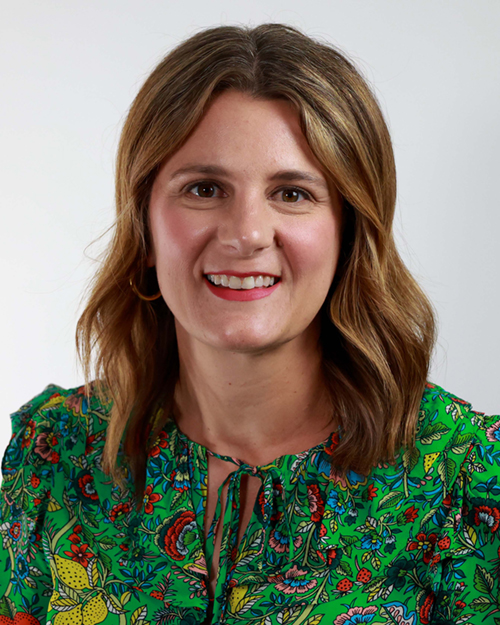Debunking Seven Common MBA Myths

Jenna Kinkeade, director of Baylor’s Online MBA program, sets the record straight.
Debunking Seven Common MBA Myths

Jenna Kinkeade
Everyone approaches an MBA program with a particular set of expectations and biases. Sometimes these are grounded in reality, and sometimes they are completely off base.
Above, Jenna Kinkeade, former director of Baylor’s Online MBA program, addresses the misconceptions she encounters most frequently:
1. “You must have an undergraduate business degree to pursue an MBA.”
While 40 percent of Baylor’s incoming MBA students have earned an undergraduate degree in business, the other 60 percent studied art, engineering, computer science, communication and a whole range of other subjects. By virtue of their experience, they approach their business classes through a different lens and enrich the classroom experience for the entire cohort.
If you have practical business experience, the focus of your undergraduate degree is less significant than you might imagine. Your MBA will fill in the gaps that exist in your academic knowledge base, and the Hankamer School of Business offers extra support prior to beginning the program. For example, we offer an online module in MBA Math for any incoming student who needs to sharpen their quantitative skills.
2. “You need many years of work experience for an MBA program to be worthwhile.”
Some people harbor the misconception that an MBA is not worth pursuing unless you enroll with years of experience under your belt. While a mid- or late-career MBA may be the right choice for some professionals, others benefit immensely from enrolling at the beginning of their careers. Many of Baylor’s Full-Time MBA students come straight out of an undergraduate program or have several years of experience. They find that the MBA gives them an early competitive edge and accelerates their growth at a crucial time in their career development. While our Executive MBA (EMBA) students come in with more experience, we are seeing a trend toward fewer years of experience in our Online MBA program.
3. “You need high standardized test scores to be considered a competitive applicant.”
Even if standardized testing is not your forte, you can still get into a competitive MBA program. A GMAT or GRE score is only one component of your application. For the Full-Time MBA program, strong work experience and undergraduate GPA will counterbalance lower test scores. Most top-ranked Online and EMBA programs do not require test scores at all. At Baylor, only a handful of students who apply to our Online MBA program choose to submit them.
4. “An MBA is all you need to make a career change overnight.”
Some students approach their MBA program hoping that it will unlock a different career path overnight. While an MBA is a valuable tool for making a pivot, there is a reason we use the word “pivot” rather than “change.” It takes time to turn a large ship in a different direction. If you are an engineer and want to forge a new path as an investment banker, for example, you should not expect to enroll in an MBA program and land your dream job in investing immediately after graduation. That may happen, but with little to no background in investing, you are unlikely to make an instant 180-degree turn. What is more likely is a pivot—a job that bridges your old and new fields. Then, you make another pivot, and another, until you are moving full steam ahead in a new direction. An MBA can form a critical stepping stone in this process.
5. “An online MBA program is less rigorous than an in-person program.”
Anyone who thinks an online MBA program is the easy way to earn a degree has never taken online classes at Baylor’s Hankamer School of Business. Because of how they are designed, our online classes are every bit as rigorous as in-person classes. Our students complete the same assignments under the instruction of the same professors as their Full-Time and EMBA counterparts. The mode of delivery looks different, but the standards are identical.
6. “You will become an expert in everything business-related by the time you finish your MBA.”
One of the primary strengths of any MBA program is its comprehensive approach. It will teach you the languages of accounting, finance, marketing, operations and other primary functions of business. With a solid foundation of knowledge in each of these areas, you will understand how each area works together to contribute to the overall success of the business. You will be equipped to ask better questions, make more informed decisions and view your daily work through a more strategic lens. What an MBA cannot do, however, is transform you into an expert in everything under the umbrella of business. It is a general, broad-based degree that is not intended to replace specialized work experience or a master’s degree with a more narrow focus.
7. “An MBA is financially out of reach."
Many people are surprised to find how financially accessible an MBA is once they factor in scholarships, financial aid and company stipends. For incoming Full-Time MBA students, Baylor Scholarships range from 25 to 100 percent of tuition covered. In 2022, students received an average of 65 percent covered. Baylor’s Student Financial Services Office will work with you to find an option that fits your budget. Then, once you take the leap, you will discover a strong return on investment. On average, individuals who earn an MBA increase their salaries by 64 percent within three years of graduation.
What's Next
Is an MBA the right next step for you? Click here to learn more about Baylor’s MBA programs or fill out the form below to speak directly with an admissions advisor.